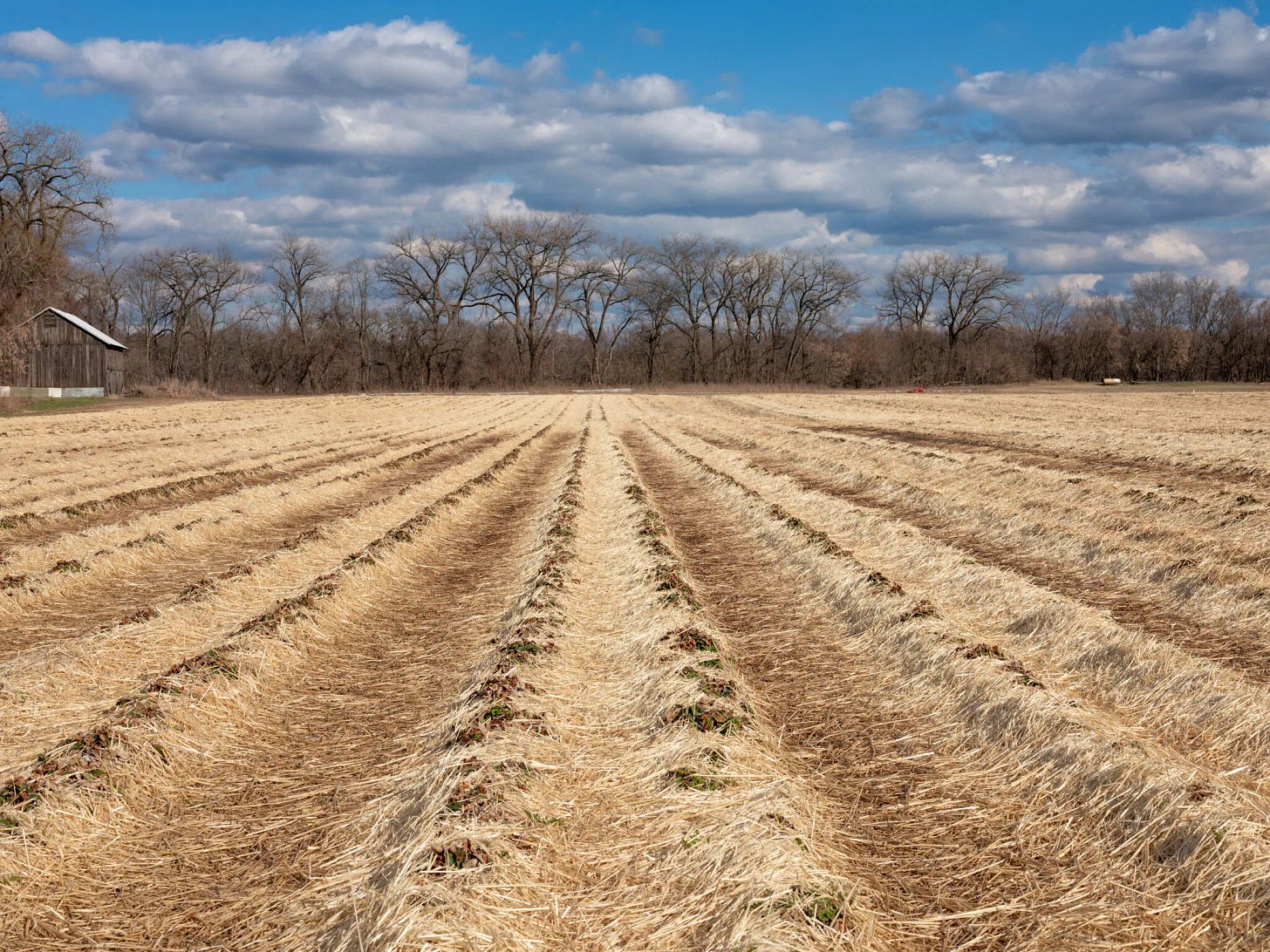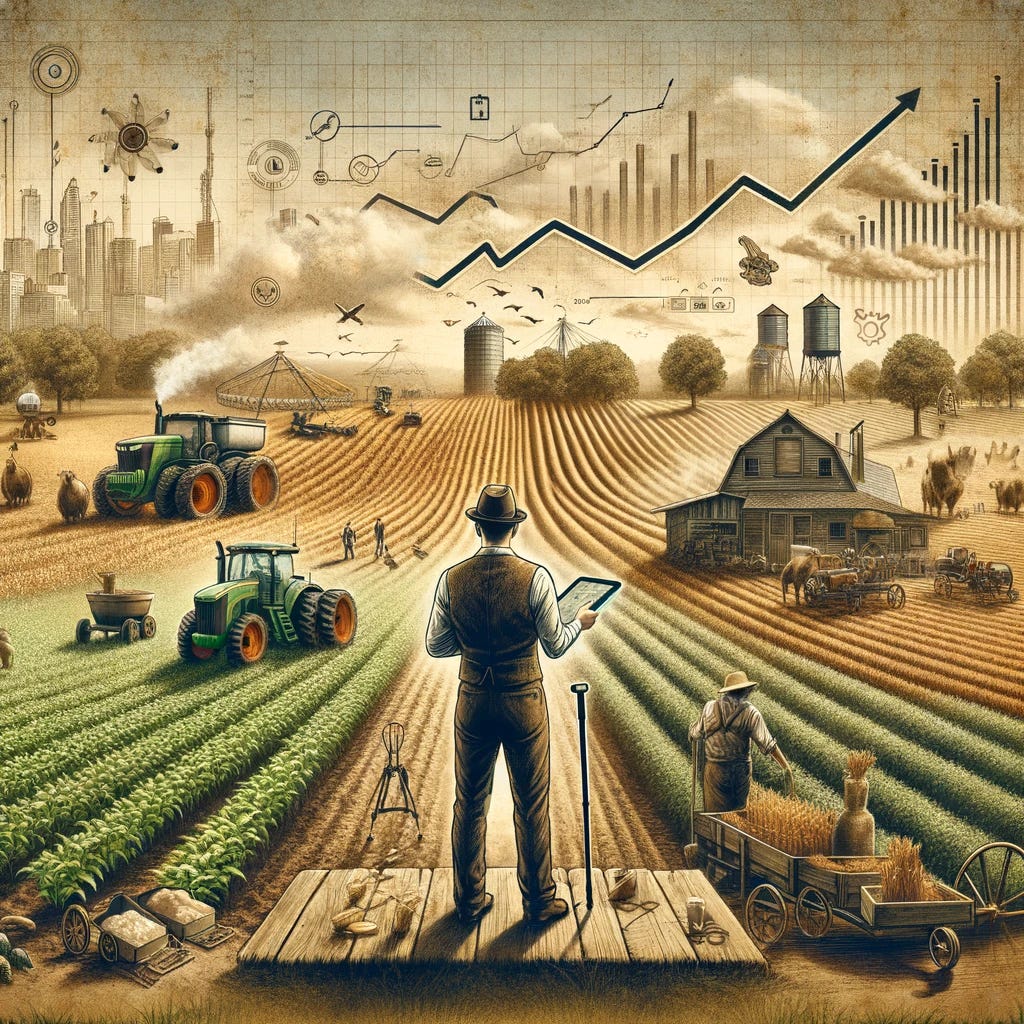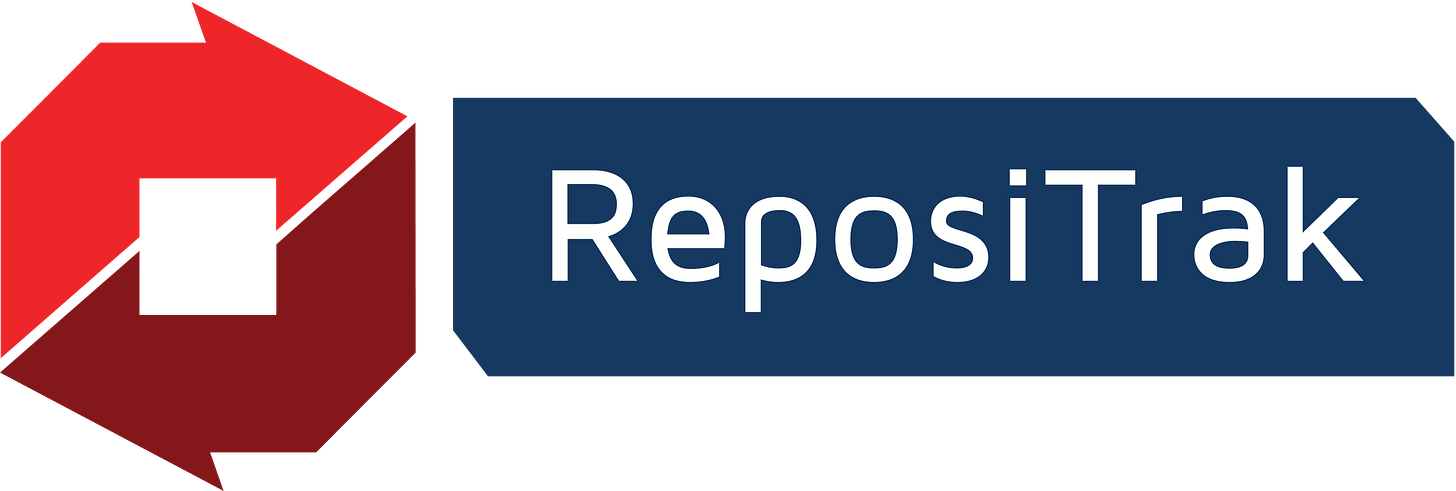The Weekly DIALogue: Insurance Woes, AgTech Capital Drought, and FSMA Traceability People
March 29, 2024
Welcome back to the Weekly DIALogue!
The Weekly DIALogue covers industry happenings, entrepreneurial wisdom, advanced agrifood analysis, and so much more. We help YOU stay in the know for everything ag-tech.
Two things before we begin:
Awesome seeing all of you in Chicago this week. Two great days of meeting stakeholders, polishing problem spaces, and solutioning. I’m really excited to see what you all come up with as we enter the final stretch of our cohort.
Also, ever heard of the Super Bowl Indicator? Basically it’s the idea that sports games can influence a financial future. Though unscientific (and a little superstitious), it’s somehow been right 72% of the time! An important idea to keep in mind as you might be tempted to root for Gonzaga or Tennessee this weekend. Boiler up!
Now to the fun stuff!
In today's Weekly DIALogue, you'll find:
Industry Articles:
They Grow Your Berries and Peaches, but Often Lack One Item: Insurance - New York Times
AgTech Entrepreneurs – how does a 1-person startup MVP for $50-100k and a $50-100M exit sound? - Matt Duflock
Future Leadership In Food And Ag - Kincannon & Reed
Seizing opportunities amid the agtech capital drought - McKinsey & Company
Key Resources Determining the Future of the Farm: Human Capital and Information Technology - FarmDoc Daily
Industry Report: AgFunder Global AgriFoodTech Investment Report 2024
Featured Startups:
Industry Articles
They Grow Your Berries and Peaches, but Often Lack One Item: Insurance - New York Times
People have been using insurance since the Code of Hammurabi stipulated risk sharing for seafaring traders. In its modern times, insurance is still a vital tool for any business as they plan for the future. Farmers are no exception.
But a changing macro environment is creating turbulence as farmers seek to secure insurance. According to one Stanford study (cited in the article), changes in temperatures have accounted for 19% of the $27Bn in crop insurance payouts from 1991 to 2017. In 2022, there were 18 natural catastrophe events (or “CAT Losses”) that cost $1 Billion or more. And total CAT Losses are up 45% since 2020.
Insurance agencies are taking notice.
Many farmers, especially in specialty crops, are struggling to secure affordable insurance. Some are becoming disincentivized to grow crops altogether. How could any business survive if they can’t afford critical insurance packages?
Related Articles:
Crop Insurance, Production Costs, ERP Among Key Topics at Senate Ag Farm Bill Hearing
Transforming Crop Insurance: Prioritizing Producers and Enhancing User Experience with Technology
AgTech Entrepreneurs – how does a 1-person startup MVP for $50-100k and a $50-100M exit sound? - Matt Duflock
Matt Duflock comes through yet again with a brilliant, practical article about market disruption for ag-tech entrepreneurs. (if you don’t know Matt, be sure to check him out on LinkedIn). In his article, Matt outlines four big trends that are transforming the ag-entrepreneurship landscape:
Commoditization of Ag data
Lowering of analytics R&D costs
Sharp declines in customer support costs
Easier customer acquisition tests
These trends, Matt says, have drastically changed the capital structure for startups. Startups can get an MVP and GTM faster, leading to a quicker cash-flow status. Doesn’t this get you pumped!
A great quote from Matt here (and if you read Matt he isn’t exactly a super-optimist):
Imagine a one-person startup with these tools leveraged properly that creates a $50-100M exit in 2-3 years.
Future Leadership In Food And Ag - Kincannon & Reed
Now more than ever, food and agriculture needs strong, dynamic leadership. Amidst the changing times, companies are fighting to find their path as they face a myriad of challenges. But what skills will a future agri-food leader possess?
Kincannon & Reed have identified three qualities that will set the future generation apart: being a systems thinker, possessing strong digital acumen, and great emotional intelligence. Leaders will possess a unique blend of skills to “drive innovation, foster sustainability, and inspire change.”
A good read as you think about what leadership might look like when you start the ag-tech companies in the future.
Seizing opportunities amid the agtech capital drought - McKinsey & Company
Ag-tech VC has dipped in the past few years. $37 Billion in total funding has declined since 2020. Founders are managing burn rates and strapping up as they expect drier or empty funding rounds.
Still, ag-tech is incredibly important to solving some of our world’s grandest challenges. So how can startups be creative to endure this tough time?
McKinsey’s Private Equity and Principal Investors Practice recently wrote this article explaining how they see opportunity amongst this capital drought. Nearly $6 Billion in investment is being lost, they write, especially in Next-gen food and digital agriculture. Thousands of venture-backed startups are at risk for bankruptcy or shutdown as a result of dry funding. But there’s still reason for optimism!
Increasing digitization and adoption of advanced technologies, along with increasing national security concerns and ESG plays will propel agriculture technologies into a promising future. Much more in the article. Well worth the read!
Key Resources Determining the Future of the Farm: Human Capital and Information Technology - FarmDoc Daily
Production agriculture is facing a complete transformation. Farmers are now required to navigate a multitude of disrupting factors, many stemming from an industry wide push toward digitization.
This transformation will threaten the “key resources” of the farm, write the authors of this article. To manage this risk, farmer must develop and leverage HR and IT expertise. Effective management of such areas will lead to growth and productivity, but the risks they bring must be effectively managed.
Industry Report
AgFunder Global AgriFoodTech Investment Report 2024 - AgFunder
From AgFunder:
There’s no way to sugarcoat this: investment in agrifoodtech startups is at its lowest point in six years. Not only is it lower than those pre/early Covid, crazy-VC-inflated-valuations years between 2018 and 2021 but it also declined as an overall portion of the global venture capital landscape. In 2023, agrifoodtech represented just 5.5% of all venture capital sector dollars, down from 6.7% in 2022 and 7.6% in 2021
This is a really good read detailing the state of “agrifoodtech” investment. And don’t worry, it’s not all doom and gloom!
Featured Startups
Highlight: In-Home Product Testing Platform
Highlight is a B2B SaaS food-tech company that provides efficient and scalable at-home product testing. Their technology allows large CPGs like Nestle, Pepsi, and Mondelez to gather high-quality product data, fast. Highlight’s platform and analytics can improve a multitude of processes within a company: R&D, Consumer Insights, Brand Managing, Marketing, and Technical Insights.
Last August, Highlight raised a $22.6M Series A round led by Acre Venture Partners and HearstLab, with participation from Kraft Heinz, Nestle, and more. This brings their Raised to Date to $30.8M.
Source: Empowering Growers Through AI
Source is an AI SaaS solution that offers in-depth data analysis, AI-driven crop management, and autonomous execution strategies for greenhouses. They have four offerings: Source Plant App, an iPad application that offers a digital twin of your plants; Source Track, software that tracks critical cultivation metrics; Source Cultivate, software that does your yield optimization; and Source Irrigation Control, software to manage all of your water management needs. In essence, Source is an artificial grower that acts in autopilot.
Source raised a $27M Series A round in June 2023 led by Astanor Ventures. This brings their Raised to Date to $38.34M.
ReposiTrak: The FSMA Traceability People
ReposiTrak is a provider of cloud based consignment inventory services, offering compliance management and inspection audits. They’re an industry leader in FSMA audit management, with a network of more than 5,000 retail stores, 1,500+ suppliers, and 25 distribution centers. Big names like Albertsons, HyVee, and SpartanNash use ReposiTrak to ensure they are FSMA compliant.
ReposiTrak was formed as a JV between Park City Group, Leavitt Partners, and Recall InfoLink in 2012. Park City Group then acquired 15% from Leavitt Partners and Recall InfoLink in 2015.











